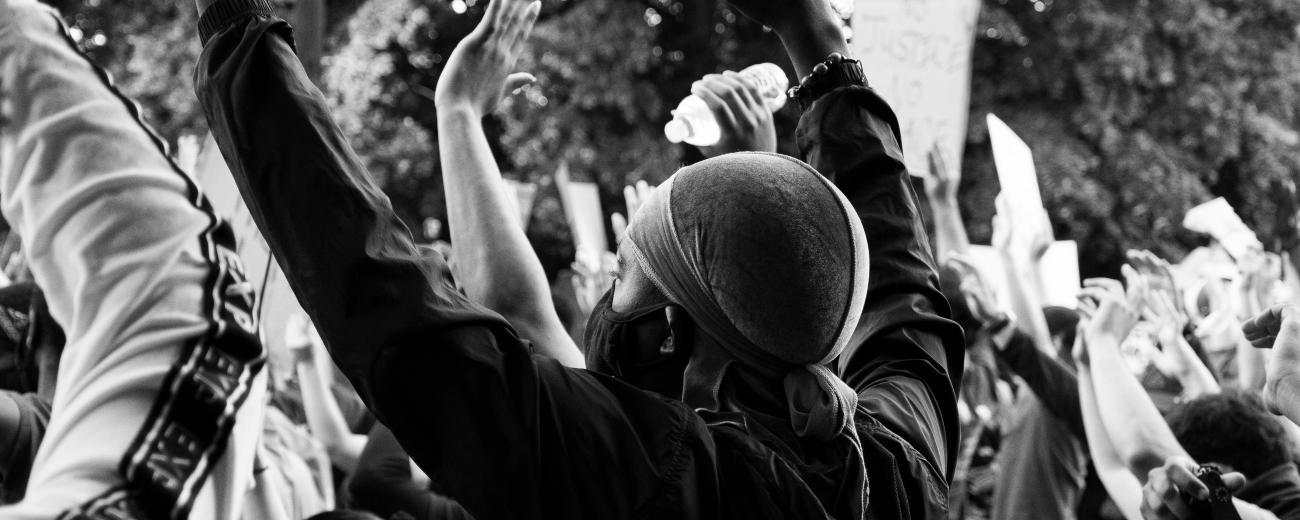
Unpacking Anti-Blackness in the Black diaspora

Key information
- Date
- Time
-
6:00 pm to 8:00 pm
- Venue
- Paul Webley Wing, SOAS
- Room
- S209 (second floor)
- Event type
- Event highlights
About this event
The Centre for Pan-African Studies in partnership with the School of Pan-African Thought, invites you to the second event of the series, which is a workshop titled “Unpacking Anti-Blackness in the Black diaspora”.
Anti-Blackness culture has become a global issue, spreading easily through modern technology and media. It collectively forms a racial reputation of Black inferiority that continues to place Black people at the bottom of the racial hierarchy with all the harmful consequences that come with being at the bottom of a status hierarchy.
This workshop explores how anti-Blackness culture is shared and learned, shaping how Black people see themselves and how others see them. We'll discuss the beliefs, attitudes, and behaviors that contribute to a perception of Black inferiority and the harmful impacts of this perception. By understanding how these ideas spread, we can work towards creating effective ways to counter them.
This workshop will define anti-Blackness culture, explore how it spreads, explain why discrimination happens and what results from these harmful beliefs and practices.
About the speaker
Christopher Grandison has fifteen years of experience as a teacher in London. Since 2018 he has been using his background in evolutionary psychology (MSc) as an educational consultant around issues ranging from the relationship between African-Caribbean culture and educational attainment, knife crime (causes and consequences), an understanding of the influence of unconscious racial bias in education and the psychological impact of racial diversity and representation in the curriculum.
In 2020 he published the book titled ‘The Racial Hierarchy: Anti-Blackness Culture and Anti-Black Racism the Causes and Consequences. An Evolutionary Perspective’.
Image credit: Koshu Kunii via unsplash
About the series
The presence of Black populations in the UK has roots stretching back centuries. However, it wasn't until the 1950s that a noticeable increase occurred, leading to the formation of significant Black communities across the country. These communities were primarily comprised of British 'subjects' originating from former colonies and members of the Commonwealth.
They were invited to aid in the post-World War II reconstruction efforts and to fulfil labour demands. Despite their status as invited British citizens, the Windrush generation faced pervasive racism, social marginalization, and systemic violence, necessitating resilience for survival. The recent Windrush scandal speaks to how little has changed since then.
Presently, the Black population in Britain encompasses communities stemming from the historical Black diaspora, mainly from the Caribbean and African Commonwealth nations, as well as more recent migrants who arrived from the 1980s onward, often as asylum seekers or economic migrants. This series aims to delve into and analyze the current realities of Black lives in Britain, recognizing the diverse array of experiences among different cohorts.
Through the lens of Pan-Africanism, we want to examine points of tension and solidarities across the Black diaspora. How do national or Pan-African identities and belonging shape those inter-group interactions? What does internalised anti-Blackness look like at the grassroots level? Can a re-imagined Pan-Africanism have a role in strengthening existing solidarity and forging new ones? These are some of the questions we aim to answer through the series.


